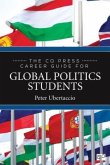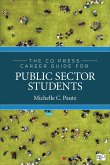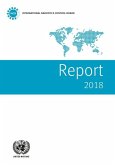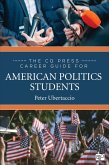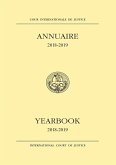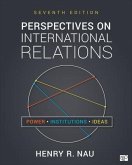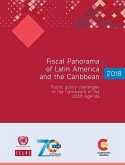Henry R Nau, Cq Researcher
Perspectives on International Relations 6e + the CQ Researcher, Global Issues 2018 Edition
Henry R Nau, Cq Researcher
Perspectives on International Relations 6e + the CQ Researcher, Global Issues 2018 Edition
- Broschiertes Buch
- Merkliste
- Auf die Merkliste
- Bewerten Bewerten
- Teilen
- Produkt teilen
- Produkterinnerung
- Produkterinnerung
This bundle includes Henry Nau′s Perspectives on International Relations 6e and The CQ Researcher′s Global Issues
Andere Kunden interessierten sich auch für
![The CQ Press Career Guide for Global Politics Students The CQ Press Career Guide for Global Politics Students]() Peter N UbertaccioThe CQ Press Career Guide for Global Politics Students51,99 €
Peter N UbertaccioThe CQ Press Career Guide for Global Politics Students51,99 €![The CQ Press Career Guide for Public Sector Students The CQ Press Career Guide for Public Sector Students]() Michelle C PautzThe CQ Press Career Guide for Public Sector Students51,99 €
Michelle C PautzThe CQ Press Career Guide for Public Sector Students51,99 €![Report of the International Narcotics Control Board for 2018 Report of the International Narcotics Control Board for 2018]() Report of the International Narcotics Control Board for 201848,99 €
Report of the International Narcotics Control Board for 201848,99 €![The CQ Press Career Guide for American Politics Students The CQ Press Career Guide for American Politics Students]() Peter N UbertaccioThe CQ Press Career Guide for American Politics Students56,99 €
Peter N UbertaccioThe CQ Press Career Guide for American Politics Students56,99 €![Yearbook of the International Court of Justice 2018-2019 Yearbook of the International Court of Justice 2018-2019]() Yearbook of the International Court of Justice 2018-201947,99 €
Yearbook of the International Court of Justice 2018-201947,99 €![Perspectives on International Relations Perspectives on International Relations]() Henry R NauPerspectives on International Relations199,99 €
Henry R NauPerspectives on International Relations199,99 €![Fiscal Panorama of Latin America and the Caribbean 2018 Fiscal Panorama of Latin America and the Caribbean 2018]() Fiscal Panorama of Latin America and the Caribbean 201842,99 €
Fiscal Panorama of Latin America and the Caribbean 201842,99 €-
-
-
This bundle includes Henry Nau′s Perspectives on International Relations 6e and The CQ Researcher′s Global Issues
Hinweis: Dieser Artikel kann nur an eine deutsche Lieferadresse ausgeliefert werden.
Hinweis: Dieser Artikel kann nur an eine deutsche Lieferadresse ausgeliefert werden.
Produktdetails
- Produktdetails
- Verlag: Sage Publications
- Erscheinungstermin: 1. März 2018
- Englisch
- Abmessung: 251mm x 203mm x 38mm
- Gewicht: 1724g
- ISBN-13: 9781544343440
- ISBN-10: 1544343442
- Artikelnr.: 54471844
- Herstellerkennzeichnung
- Produktsicherheitsverantwortliche/r
- Europaallee 1
- 36244 Bad Hersfeld
- gpsr@libri.de
- Verlag: Sage Publications
- Erscheinungstermin: 1. März 2018
- Englisch
- Abmessung: 251mm x 203mm x 38mm
- Gewicht: 1724g
- ISBN-13: 9781544343440
- ISBN-10: 1544343442
- Artikelnr.: 54471844
- Herstellerkennzeichnung
- Produktsicherheitsverantwortliche/r
- Europaallee 1
- 36244 Bad Hersfeld
- gpsr@libri.de
Henry R. Nau has combined an outstanding career in the academic world with two opportunities to serve at the highest levels of the U.S. government. He brings this experience to bear in this textbook, integrating theory and practice with unprecedented clarity for understanding historical and contemporary issues in world affairs. Nau is currently professor of political science and international affairs at the Elliott School of International Affairs, George Washington University. He taught previously at Williams College and held visiting appointments at Johns Hopkins School of Advanced International Studies, Stanford University, and Columbia University. From 1977 to 1981, Nau served on the Board of Editors of the journal International Organization. He has received research grants from, among others, the Woodrow Wilson International Center for Scholars, the National Science Foundation, the Council on Foreign Relations, the Smith-Richardson Foundation, the Century Foundation, the Japan-U.S. Friendship Commission, the Hoover Institution, the Rumsfeld Foundation, and the Lynde and Harry Bradley Foundation. Nau served from 1975 to 1977 as special assistant to the undersecretary for economic affairs, Charles Robinson, in the U.S. Department of State. In that capacity he worked in the office of the Secretary of State Henry Kissinger to organize a major conference on science, technology, and foreign policy. For his service, he was awarded the State Department′s Superior Honor Award. From 1981 to 1983 Nau served as a senior staff member of the National Security Council responsible for international economic affairs. He was President Reagan's White House aide, or Sherpa, for the annual G7 economic summits in Ottawa (1981), Versailles (1982), and Williamsburg (1983), and for the special summit with developing countries in Cancun (1982). At those summits, the United States led a revival of the world economy from the stagflation and resource shortages of the 1970s to thirty years of 3+ percent growth per year, promoting the so-called Washington Consensus (originating in the Williamsburg Summit Communique) of lower inflation, freer markets and open trade. Nau wrote an account of these early years in The Myth of America's Decline (see below). Outside government, Nau continued his public service. From 1984 to 1990 he served on the U.S. Department of State's Advisory Committee on International Investment and as the U.S. member of the UN Committee for Development Planning. From 1989 to 2016, he directed the U.S.-Japan-South Korea Legislative Exchange Program, semiannual meetings among members of the U.S. Congress, the Japanese Diet, and the South Korean National Assembly. In 2016, the Japanese government awarded him the Order of the Rising Sun, Neck Ribbon with Gold Rays, the highest honor for academic leaders, in recognition of his work on this Exchange. From 1963 to 1965, Nau also served as a lieutenant in the 82nd Airborne Division at Fort Bragg, North Carolina.Nau's published books include, among others, Conservative Internationalism: Armed Diplomacy under Jefferson, Polk, Truman, and Reagan (Princeton University Press, 2013, and paperback with new preface, 2015); At Home Abroad: Identity and Power in American Foreign Policy (Cornell University Press, 2002); Trade and Security: U.S. Policies at Cross-Purposes (American Enterprise Institute, 1995); The Myth of America's Decline: Leading the World Economy into the 1990s (Oxford University Press, 1990); and National Politics and International Technology: Peaceful Nuclear Reactor Development in Western Europe (Johns Hopkins University Press, 1974). His most recent edited book is Worldviews of Aspiring Powers: Domestic Foreign Policy Debates in China, India, Iran, Japan, and Russia, coedited with Deepa M. Ollapally (Oxford University Press, 2012). Most recent articles and chapters in edited books include "Democratic Globalism," National Interest, November/December 2018; "Trump's Conservative Internationalism," National Review, August 2017; "America's International Nationalism," American Interest, January/February 2017; "The Difference Reagan Made," Claremont Review of Books, Winter 2016-2017; "How Restraint Leads to War: The Real Danger of the Iran Deal," Commentary (July/August, 2015); "Ideas Have Consequences: The Cold War and Today," International Politics 48 (July/September 2011): 460-81; "No Alternative to 'Isms, '" International Studies Quarterly 55, no. 2 (June 2011): 487-91; "The 'Great Expansion' The Economic Legacy of Ronald Reagan," in Reagan's Legacy in a Transformed World, edited by Jeffrey L. Chidester and Paul Kengor (Harvard University Press, 2015); "Scholarship and Policy-Making: Who Speaks Truth to Whom?," in The Oxford Handbook of International Relations, edited by Christian Reus-Smit and Duncan Snidal (Oxford University Press, 2008); and "Iraq and Previous Transatlantic Crises: Divided by Threat, Not Institutions or Values," in The End of the West? Crisis and Change in the Atlantic Order, edited by Jeffrey Anderson, G. John Ikenberry, and Thomas Risse (Cornell University Press, 2008). For Nau's personal website, see www.henryrnau.com


